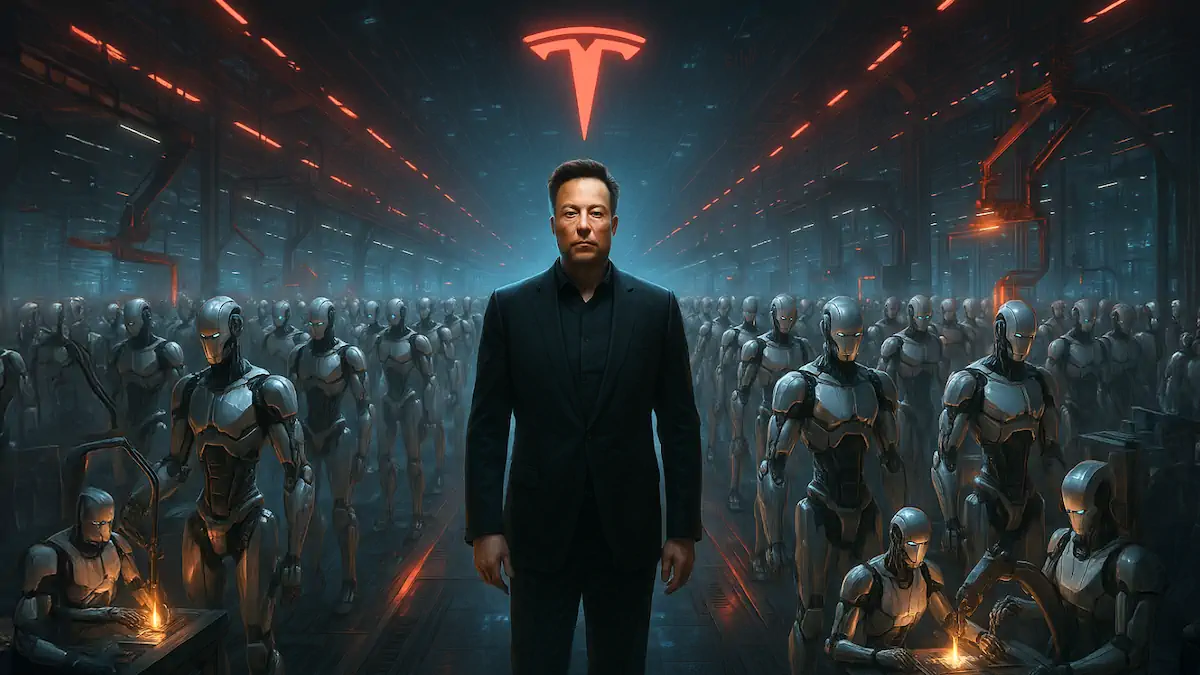Inside Elon Musk’s “Robot Army”: How Tesla’s Vision Could Rewire Global and Small-Cap Robotics Markets

In the high-stakes theater of Tesla's latest earnings call, Elon Musk didn't just drop numbers, he unleashed a sci-fi manifesto that's got Wall Street buzzing like a swarm of overcaffeinated drones. With his trademark flair, Musk pitched a $1 trillion compensation package not as a golden parachute, but as his ticket to command what he cheekily calls Tesla's "robot army." "I don't feel comfortable building that robot army if I don't have at least a strong influence," he quipped, framing the Optimus humanoid robot project as nothing short of humanity's gateway to a post-scarcity utopia. And folks, if history's any guide, when Musk muses about moonshots, markets don't just listen, they leap.
This isn't hyperbole; it's the dawn of a robotics renaissance, one where Musk's overarching vision of AI-driven abundance is turbocharging small-cap robotics firms and overhauling supply chains from factory floors to global trade routes. As Tesla gears up for Optimus V3 prototypes in early 2026, with mass production eyeing millions of units, the ripple effects are already palpable. Musk envisions these bots, capable of everything from folding laundry to performing surgery, as the linchpin for "universal high income," where work becomes optional, like opting for homegrown veggies over store-bought. It's a bullish blueprint that's not only elevating Tesla's stock but igniting a gold rush in the broader robotics ecosystem.
Take small-cap robotics players: Musk's unapologetic push for dominance is like tossing rocket fuel on a bonfire. Companies specializing in sensors, AI software, and actuators are seeing investor dollars flood in, anticipating partnerships or acquisitions to feed Tesla's voracious appetite for innovation. For instance, with no pre-existing supply chain for humanoids, Tesla's vertical integration strategy opens doors for nimble micro and small-caps to carve out niches in specialized components. Analysts are forecasting a 20-30% spike in funding rounds for these under-the-radar firms post-Musk's pronouncements, drawing parallels to the EV boom that minted fortunes a decade ago. One major pharma player has already inked a deal for up to 10,000 Optimus units, signaling real-world demand that's bound to trickle down to suppliers and startups alike. It's witty how Musk's "infinite money glitch" rhetoric, his term for Optimus's profit potential, is turning speculative robotics stocks into must-watch darlings, potentially dominating a $9 trillion market in household and industrial automation.
But the real game-changer? The supply chain metamorphosis Musk's vision demands. Forget incremental tweaks; we're talking a full-blown revolution where humanoid robots decentralize manufacturing, slashing logistics costs to pennies and making "just-in-time" look quaint. Musk's insistence on in-house mastery, building everything from AI chips to dexterous hands, exposes vulnerabilities in global dependencies, like rare-earth magnets from China that have already delayed prototypes. Yet, this challenge is a boon: as Tesla scales to billions of bots, demand for raw materials like lithium and semiconductors will skyrocket, benefiting upstream suppliers while fostering more resilient, localized networks. Imagine factories humming with Optimus crews, elderly care transformed by tireless companions, and logistics friction evaporating as robotaxis haul goods autonomously. Musk predicts this could 10x global GDP, erasing poverty and ushering in an era where abundance is the norm, not the exception.
Critics, including proxy firms like ISS and Glass Lewis, whom Musk dubbed "corporate terrorists" in a zinger that lit up social media, warn of governance risks and dilution. But with the shareholder vote looming on November 6, optimism reigns: experts like Wedbush's Dan Ives see approval as a "war-time CEO" endorsement, potentially sparking a Tesla rally and broader sector uplift. Musk's fear of being ousted mid-revolution underscores his indispensable role; after all, who else could steer this "enormous robot army" toward a world of limitless productivity?
In the end, Musk's grand narrative isn't just corporate strategy, it's a rallying cry for a bullish robotics future. Small-caps are poised for explosive deals, supply chains for unprecedented efficiency, and society for a leap into prosperity. As Musk himself posits, with tens of billions of bots on the horizon, the only limit is our imagination. Buckle up; the robot army is marching, and it's marching toward abundance.
What did you think of this article?
Let the author know your thoughts
Investment Disclaimer
The information provided in this article is for educational and informational purposes only and should not be construed as financial, investment, or professional advice. You may lose all of your money when investing. All investments carry substantial risk, including the potential for complete loss of principal. Past performance does not guarantee future results. You must conduct your own research and due diligence, including independently verifying all facts, numbers, and details provided in this article. Please consult with a qualified financial advisor before making any investment decisions.